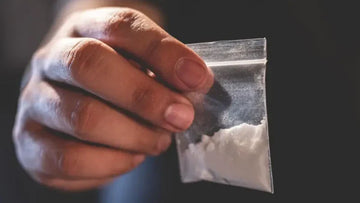In child custody disputes, the welfare of the child is of utmost importance, and social services play a critical role in assessing parental fitness. One of the tools that social services may employ in these assessments is drug testing. The intersection of substance abuse and child custody is a complex and sensitive issue, often requiring careful consideration of the legal and ethical implications.
When parents separate or divorce, custody arrangements must be established that serve the best interests of the child. Courts typically prioritize stability, safety, and the emotional well-being of the child. Social services agencies are often involved in these cases, especially when there are concerns about a parent's ability to provide a safe and nurturing environment. If substance abuse is suspected, social services may recommend drug testing as part of their evaluation process. This helps determine whether a parent’s drug use poses a risk to the child’s safety and well-being.
Drug testing in custody cases can take various forms, including urine tests, hair follicle tests, and saliva tests. The choice of testing method often depends on the specific circumstances of the case, such as the suspected substances involved and the length of time since the last use. Typically, if a parent is required to undergo drug testing, the process is governed by legal standards and protocols to ensure accuracy and fairness. Results from these tests can significantly influence custody decisions, guiding the court's assessment of a parent's fitness to care for their child.
The use of drug testing in custody cases raises several legal considerations. Parents have the right to challenge the results of drug tests, and they may argue that the tests are invasive or that the results do not accurately reflect their ability to parent. There are also concerns about privacy and the potential for discrimination. Courts generally require that drug testing be conducted in a manner that respects the rights of the individuals involved. This includes providing parents with the opportunity to explain or contest the results and ensuring that tests are administered in a reliable and standardized manner.
When drug testing reveals substance abuse, it can lead to significant consequences in custody arrangements. Depending on the severity of the drug use and its impact on parenting abilities, courts may decide to limit custody or visitation rights, require supervised visitation, or mandate participation in rehabilitation programs. These decisions aim not to be punitive but to protect the child’s best interests. Courts often seek to provide parents with opportunities for rehabilitation, allowing them to demonstrate their commitment to recovery and responsible parenting.
Recognizing the challenges that parents may face in custody disputes involving drug testing, many social services agencies offer support and resources. This can include access to counseling, rehabilitation programs, and parenting classes. By providing these resources, social services aim to help parents address substance abuse issues and improve their parenting skills.
The intersection of social services, drug testing, and child custody is a multifaceted issue that requires careful navigation. While drug testing can be a valuable tool in assessing parental fitness, it must be conducted with respect for the rights of parents and with a focus on the well-being of the child. Ultimately, the goal of all parties involved—courts, social services, and parents—should be to create a safe and nurturing environment for children, fostering their development and well-being in the face of challenging circumstances.






